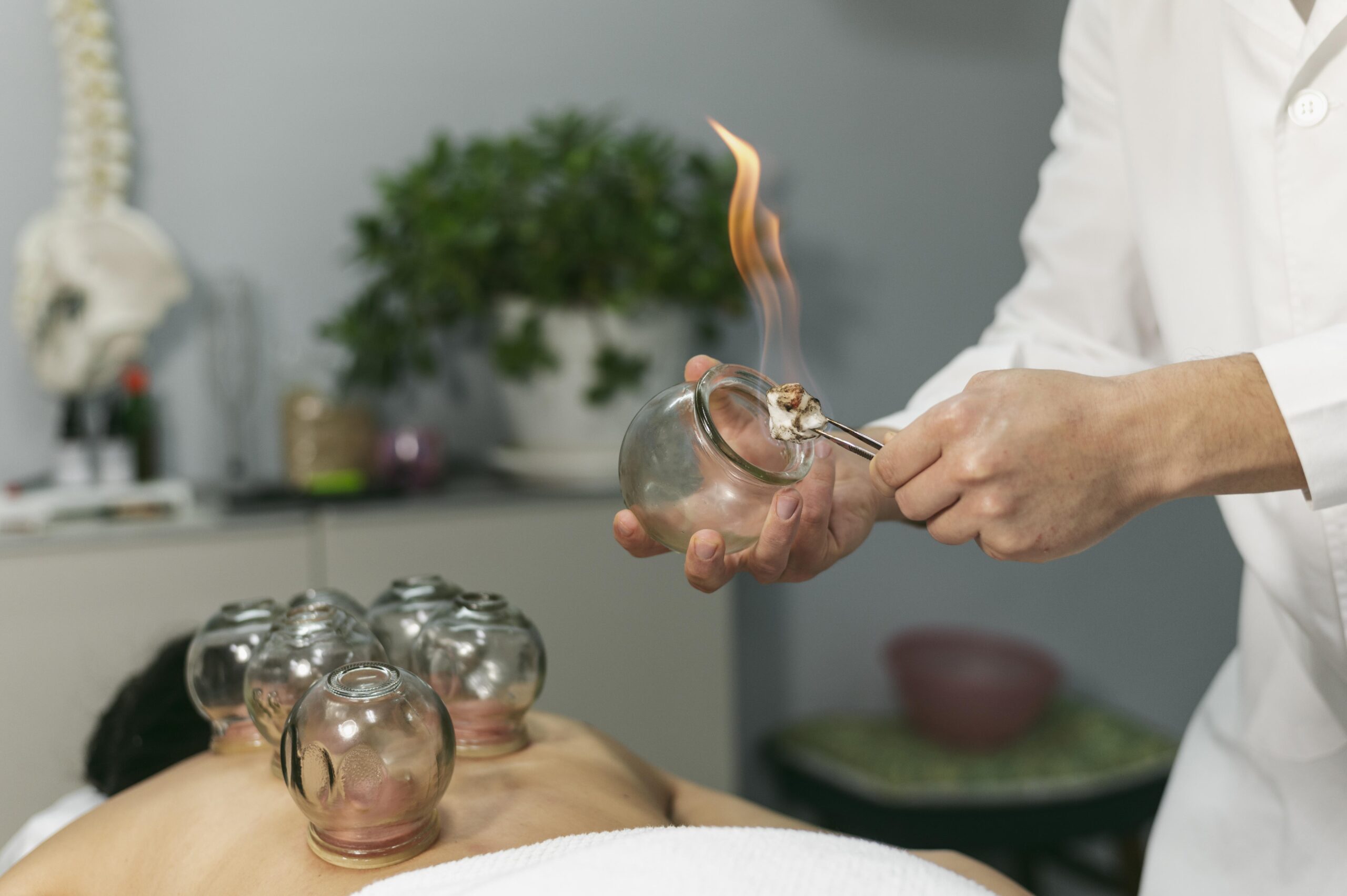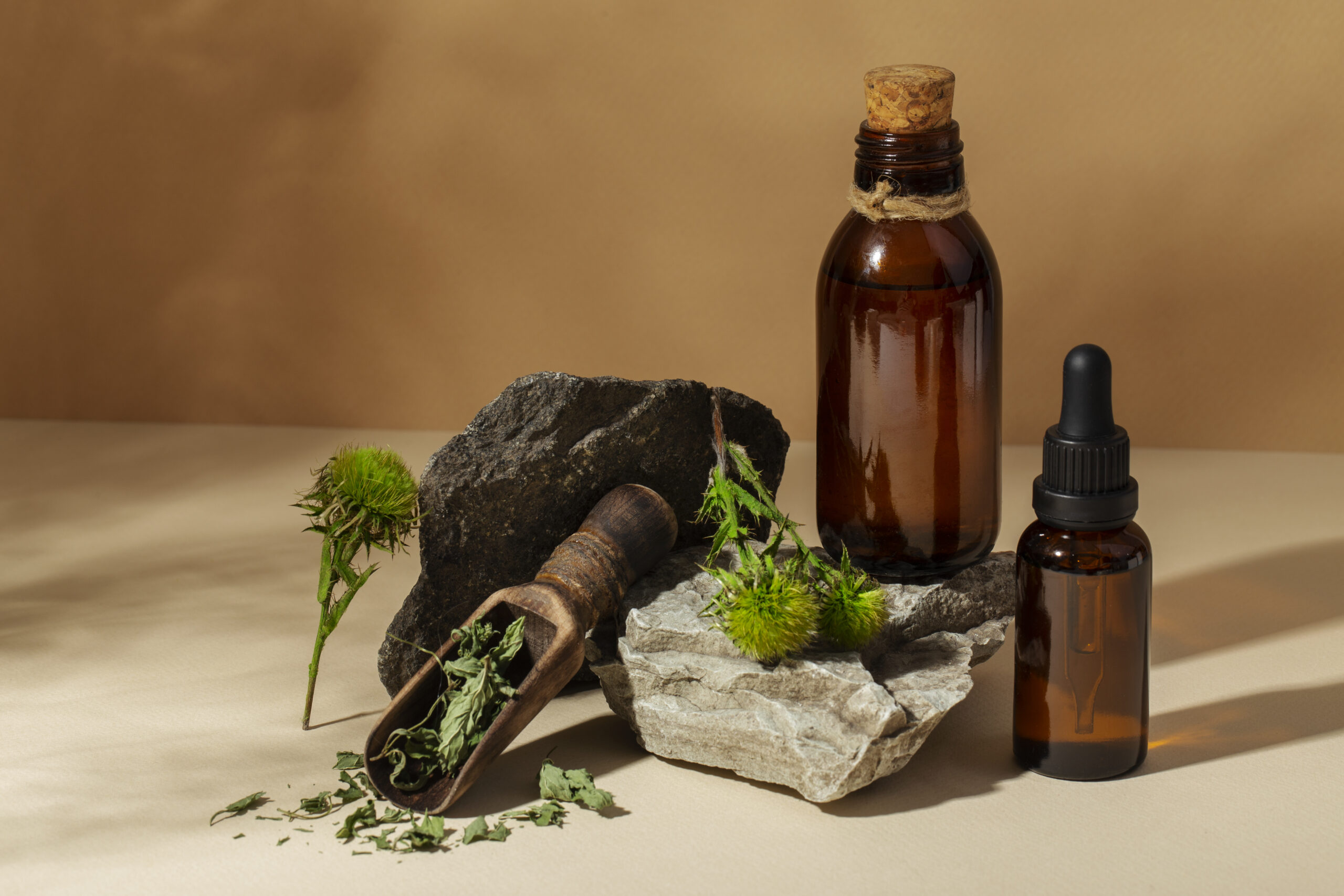Sweet Dreams: Indian Herbs for Better Sleep – Natural Remedies for Insomnia

INTRODUCTION:
Quality sleep is essential for overall health and well-being, yet many people struggle with insomnia and other sleep disturbances. While pharmaceutical sleep aids are available, they often come with unwanted side effects and may not address the underlying causes of sleep problems. In traditional Indian medicine systems like Ayurveda, several herbs are prized for their ability to promote relaxation, alleviate insomnia, and support restful sleep. In this blog, we’ll explore some of these Indian herbs known for their calming properties and their role in fostering better sleep naturally.
DISCLAIMER: The information provided in this blog is for educational and informational purposes only and is not intended as medical advice. The content is not intended to diagnose, treat, cure, or prevent any disease. Readers are advised to consult with a qualified healthcare professional regarding their specific health concerns and before starting any herbal remedies or health regimen. While every effort has been made to ensure the accuracy and completeness of the information presented, the author and publisher assume no responsibility for any errors or omissions. The use of herbal remedies and traditional medicine should be undertaken with caution and under the guidance of a qualified healthcare practitioner, especially for individuals with pre-existing medical conditions or those taking medications. The inclusion of specific herbs or formulations in this blog does not imply endorsement or recommendation. Individual responses to herbal remedies may vary, and it is important to consider individual health needs and sensitivities. Always read product labels and instructions carefully before use. By accessing and using this blog, readers acknowledge and agree to the terms of this disclaimer and release the author and publisher from any liability arising from the use or misuse of the information provided.
UNDERSTANDING INSOMNIA AND SLEEP DISTURBANCES:
Before delving into specific herbs, let’s briefly understand insomnia and common sleep disturbances:
Insomnia: Insomnia is a sleep disorder characterized by difficulty falling asleep, staying asleep, or experiencing non-restorative sleep despite having the opportunity to sleep. It can be acute (short-term) or chronic (long-term) and may be caused by various factors, including stress, anxiety, poor sleep habits, medical conditions, or medications.
Sleep Disturbances: Sleep disturbances encompass a range of sleep problems, including difficulty falling asleep, frequent awakenings during the night, waking up too early, or experiencing non-restorative sleep. Sleep disturbances can significantly impact quality of life and overall well-being if left untreated.
INDIAN HERBS FOR BETTER SLEEP:
- Ashwagandha (Withania somnifera):
Ashwagandha, also known as “Indian ginseng” or “Winter cherry,” is an adaptogenic herb prized for its stress-reducing and sleep-promoting properties. Ashwagandha helps regulate cortisol levels, the stress hormone, which can interfere with sleep when elevated. By reducing stress and promoting relaxation, ashwagandha can help improve sleep quality and duration. Additionally, ashwagandha supports the production of GABA, a neurotransmitter that promotes relaxation and sleep. Consuming ashwagandha supplements or herbal preparations before bedtime may help alleviate insomnia and promote restful sleep.
- Brahmi (Bacopa monnieri):
Brahmi, also known as “Bacopa” or “Water hyssop,” is a medicinal herb used in Ayurveda to support cognitive function, reduce anxiety, and improve sleep quality. Brahmi contains compounds called bacosides, which have been shown to modulate the activity of neurotransmitters involved in sleep regulation, such as serotonin and GABA. Brahmi’s calming effects can help reduce stress and anxiety levels, making it easier to fall asleep and stay asleep. Brahmi supplements or herbal preparations are commonly used to support relaxation and improve sleep quality.
- Jatamansi (Nardostachys jatamansi):
Jatamansi, also known as “Spikenard” or “Muskroot,” is a perennial herb native to the Himalayan region and has been used in Ayurvedic medicine for its sedative and hypnotic properties. Jatamansi contains bioactive compounds like jatamansone and valerianic acid, which have been shown to exert calming effects on the nervous system. Jatamansi helps reduce anxiety, promote relaxation, and improve sleep quality by modulating neurotransmitters involved in sleep regulation, such as GABA and serotonin. Consuming jatamansi supplements or herbal preparations before bedtime may help alleviate insomnia and induce restful sleep.
- Tagara (Valeriana wallichii):
Tagara, also known as “Indian valerian” or “Valerian root,” is a perennial herb native to India and has been used in Ayurvedic medicine for its sedative and anxiolytic properties. Tagara contains compounds like valerenic acid and valepotriates, which have been shown to enhance the activity of GABA, a neurotransmitter that promotes relaxation and sleep. Tagara helps reduce anxiety, calm the mind, and improve sleep quality by modulating GABAergic activity in the brain. Tagara supplements or herbal preparations are commonly used to support relaxation and promote restful sleep.
- Shankhpushpi (Convolvulus pluricaulis):
Shankhpushpi, also known as “Morning glory” or “Aloe weed,” is a creeping herbaceous plant native to India and has been used in Ayurvedic medicine for its cognitive-enhancing and sleep-promoting properties. Shankhpushpi contains bioactive compounds like flavonoids and alkaloids, which have been shown to have sedative and anxiolytic effects. Shankhpushpi helps reduce stress, anxiety, and mental agitation, making it easier to fall asleep and stay asleep. Consuming Shankhpushpi supplements or herbal preparations before bedtime may help alleviate insomnia and promote deep, restorative sleep.
- Lavender (Lavandula angustifolia):
Lavender is a fragrant herb widely used in aromatherapy and herbal medicine for its calming and relaxing properties. Lavender contains compounds like linalool and linalyl acetate, which have been shown to reduce anxiety, promote relaxation, and improve sleep quality. Inhaling lavender essential oil or using lavender sachets or pillows before bedtime can help induce a sense of calmness and tranquility, facilitating better sleep. Additionally, drinking lavender tea or using lavender supplements may support relaxation and promote restful sleep.
- Chamomile (Matricaria chamomilla):
Chamomile is a gentle herb known for its soothing and calming effects on the nervous system. Chamomile contains compounds like apigenin, which have been shown to have sedative and anxiolytic properties. Drinking chamomile tea before bedtime can help promote relaxation, reduce anxiety, and improve sleep quality. Chamomile supplements or herbal preparations are also available for those who prefer alternative forms of consumption. Incorporating chamomile into your nightly routine can help support better sleep and overall well-being.
Incorporating Herbal Remedies into Your Sleep Routine:
When incorporating herbal remedies into your sleep routine, it’s essential to do so mindfully and under the guidance of a healthcare professional, especially if you have underlying health conditions or are taking medications. Here are some practical tips for incorporating herbal remedies into your routine:
Create a Relaxing Bedtime Ritual: Establish a calming bedtime routine that includes activities such as drinking herbal tea, practicing relaxation techniques like deep breathing or meditation, and avoiding screens and stimulating activities.
Choose High-Quality Supplements: Select herbal supplements from reputable brands that adhere to quality standards and are free from contaminants.
Follow Recommended Dosages: Follow the recommended dosages provided on the product label or as advised by your healthcare practitioner. Avoid exceeding recommended dosages without guidance.
Be Consistent: Incorporate herbal remedies into your nightly routine consistently to reap their full benefits. It may take time for your body to adjust and experience noticeable improvements in sleep quality.
Monitor Your Response: Pay attention to how your body responds to herbal remedies. If you experience any adverse reactions or discomfort, discontinue use and consult with your healthcare practitioner.
CONCLUSION:
Quality sleep is essential for overall health and well-being, yet many people struggle with insomnia and other sleep disturbances. Indian herbs like ashwagandha, Brahmi, Jatamansi, and others offer natural and holistic support for promoting relaxation, reducing anxiety, and improving sleep quality.














